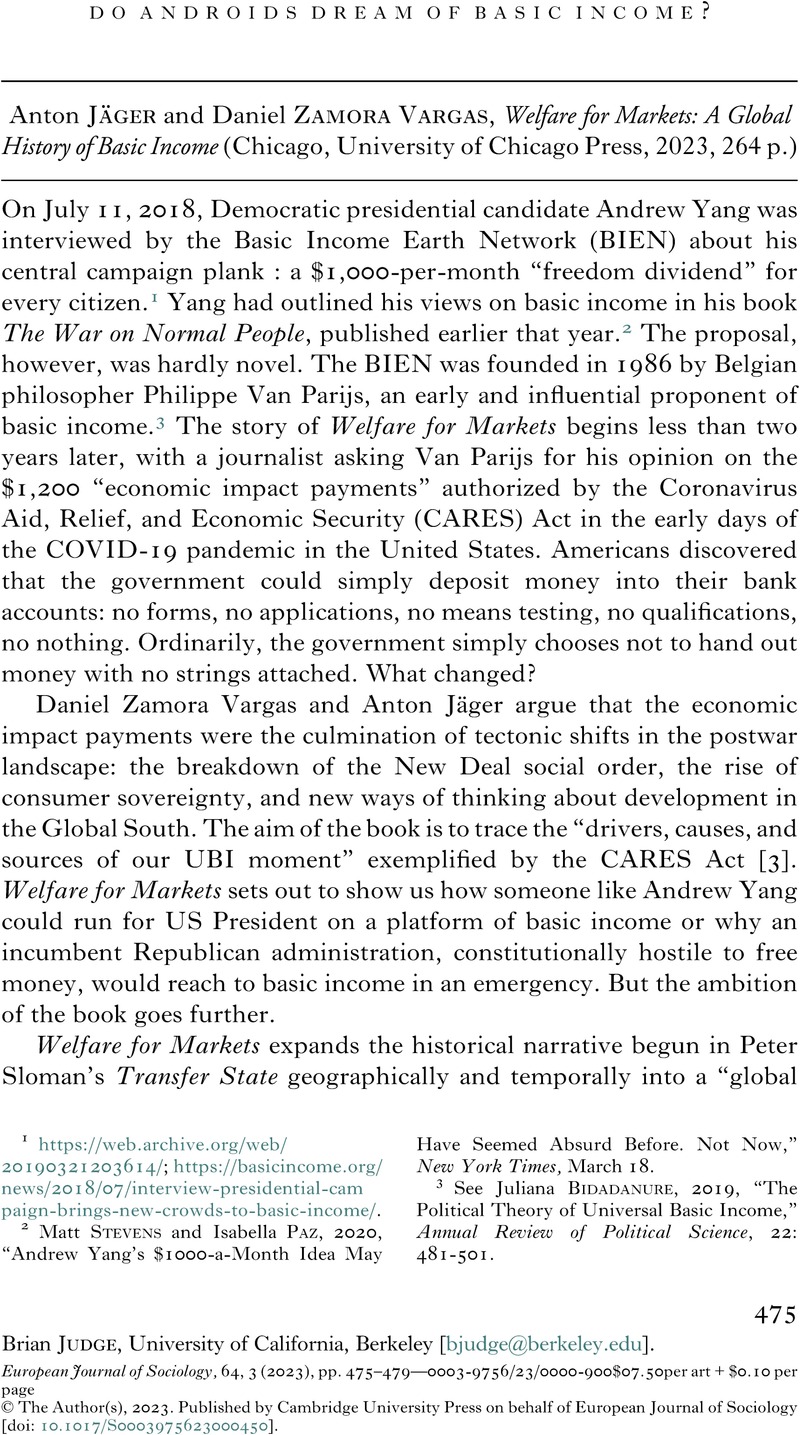No CrossRef data available.
Published online by Cambridge University Press: 13 November 2023

2 Matt Stevens and Isabella Paz, 2020, “Andrew Yang’s $1000-a-Month Idea May Have Seemed Absurd Before. Not Now,” New York Times, March 18.
3 See Juliana Bidadanure, 2019, “The Political Theory of Universal Basic Income,” Annual Review of Political Science, 22: 481-501.
4 See Anton Jäger and Daniel Zamora, 2020, “Free Money for Surfers: A Genealogy of the Idea of Universal Basic Income,” Los Angeles Review of Books, April 17.
5 Genealogy, another potentially appropriate method in the history of ideas, is presumably off limits given Zamora’s books on its most famous practitioner. See Foucault and Neoliberalism (Malden, MA, Polity, 2015). Mitchell Dean and Daniel Zamora, 2021, The Last Man Takes LSD (New York, Verso).
6 Page 960 in Daniel Zamora Vargas, 2023, “‘Welfare without the Welfare State’: Milton Friedman’s Negative Income Tax and the Monetization of Poverty,” Modern Intellectual History, 20: 934-960.
7 Melinda Cooper, 2019, Family Values (New York, Zone Books, chapt 2).
8 Page 22, in Michael Harrington, 1969, The Other America: Poverty in the United States (Baltimore, MD, Pelican).
9 Francois Ewald, 2020, The Birth of Solidarity: The History of the French Welfare State (Durham, NC, Duke University Press).
10 Peter Sloman, Daniel Zamora Vargas, and Pedro Ramos Pinto, eds, 2021, Universal Basic Income in Historical Perspective (London, Palgrave Macmillan).
11 Contre L’Allocation Universelle (Montreal, Lux, 2016), 11 [quotation translated by the author].